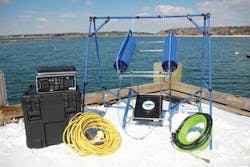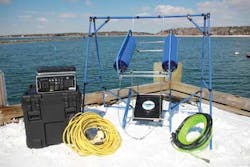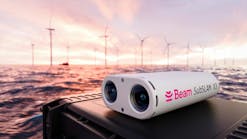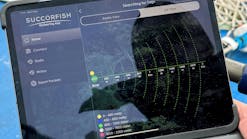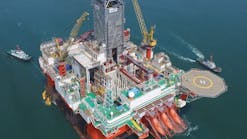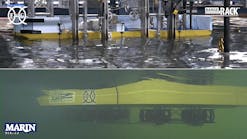Falmouth Scientific Inc. (FSI), a provider of precision oceanographic instrumentation and marine systems integration, is further developing its product line of HMS-620 Bubble Gun seismic systems, and has announced two important enhancements.
FSI's Bubble Gun Systems are suitable for small-boat shallow-water surveys. Data collected with the HMS-620 rivals that of much larger, heavier, and more expensive air-gun, boomer, and sparker systems, and its small size makes it easily deployable without the need for heavy machinery, winches, or cranes.
Bubble Gun systems use a 15 cu in. air volume to generate narrow band, low frequency acoustic signals. This proven technology provides superior signal penetration through coarse sand, gravel tills, and other difficult to penetrate sediments.
By adding a second transmit channel to the existing transceiver enclosure, and by synchronizing the two signal generators, FSI says it has realized significantly higher energy output, which results in much deeper signal penetration. The two Bubble Gun source transducers can be mounted together on one tow vehicle, or can be configured as two separate single-source vehicles.
All of FSI's Bubble Gun systems can be fitted with a 24 VDC power option, which allows them to be powered by lead-acid marine batteries. This means that you can perform shallow-water seismic surveys without the need for a generator or ship's power. Two deep-cycle marine batteries will allow over 10 hours of survey time on a single charge, with no generator noise, no fuel, no exhaust, and no degradation of the data.
Falmouth Scientific offers other sensor based products such as current, wave, and tide meters; solutions for drilling and vortex-induced vibration monitoring; portable sidescan sonar imaging; and other acoustics-based underwater instrumentation. Service areas include custom design, development, integration, and production of marine systems and acoustic transducers; and manufacturing services such as prototyping, product assembly, encapsulation (potting), calibration, and pressure testing.
Offshore Articles Archives
View Oil and Gas Articles on PennEnergy.com
